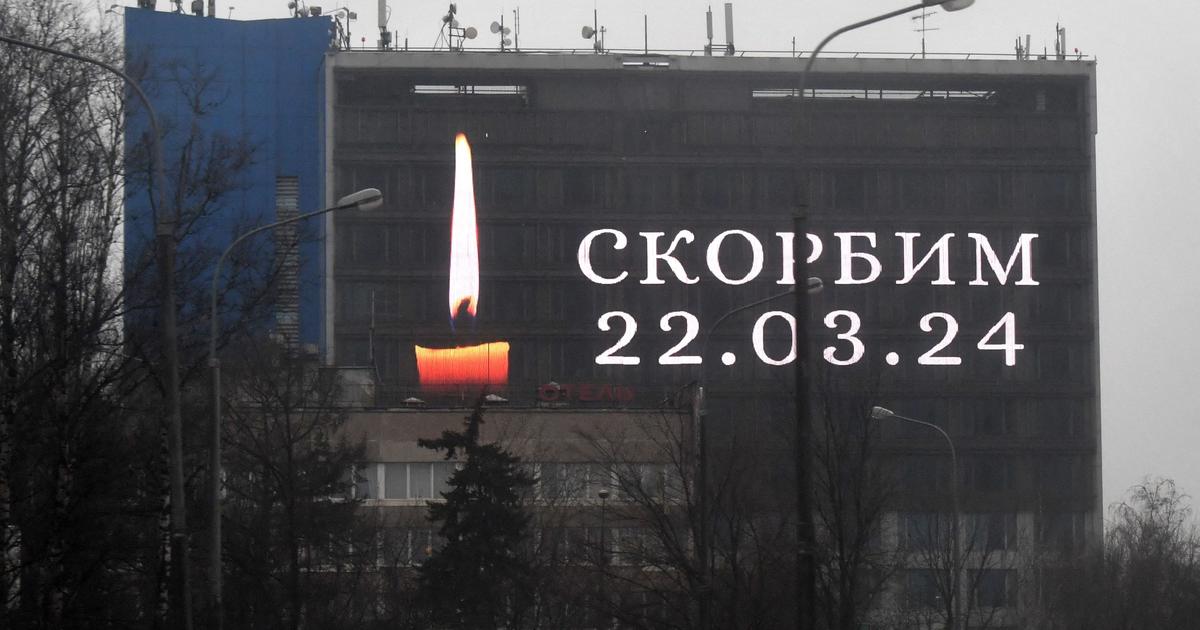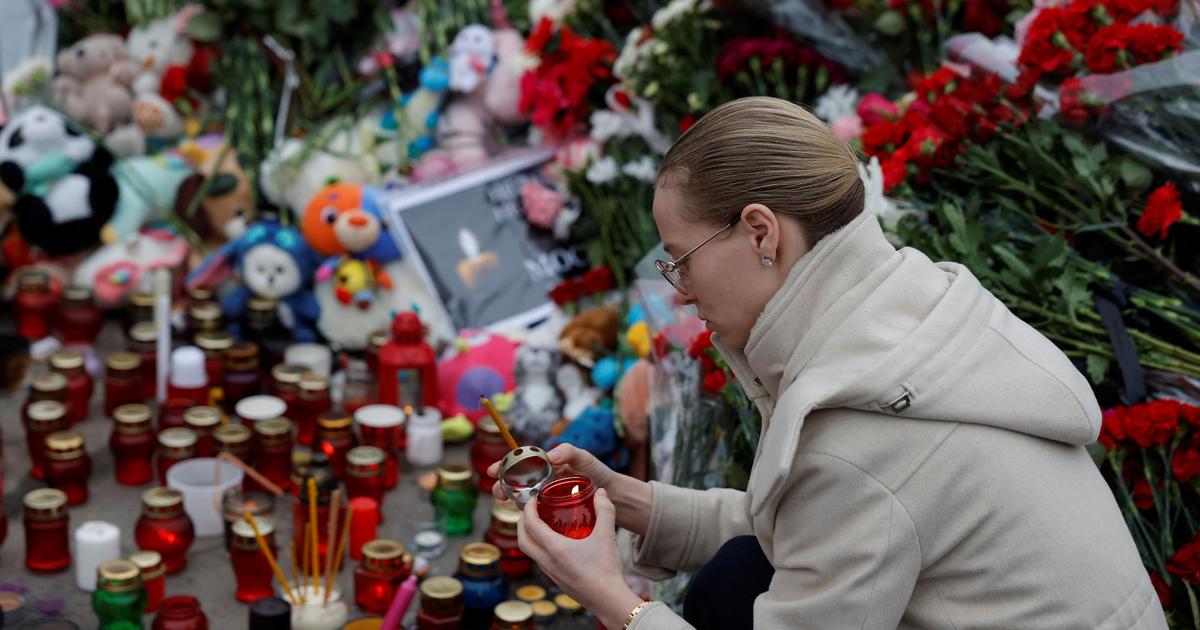which took place after another meeting with the foreign ministers of the United Kingdom and France, was also to agree on a joint position on the next steps.
At the same time, the United States is intensifying sanctions on Ukrainians suspected of collaborating with Russia in destabilizing the Kiev government.
The path of dialogue with Russia remains open and is preferred by both Washington and Berlin, assured the heads of German and American diplomacy. “We have made it very clear to him,” said Blinken, who is meeting his Russian counterpart, Sergei Lavrov, in Geneva on Friday. But if that route is not the one chosen by Vladimir Putin and he finally crosses the Ukraine border with his troops, the allies' response will be "quick, forceful and united," warned the US Secretary of State.
Baerbock also did not skimp on adjectives when speaking of the "serious consequences" that an attack on its neighbor's borders would have for Russia.
"All measures are on the table," he stressed, also referring to the controversial Nord Stream 2 gas pipeline with which Russia wants to transport natural gas directly to Germany under the Baltic Sea without going through Ukraine.
Infrastructure certification is paralyzed for not complying with European regulatory procedures.
The United States has always been against its construction, as Blinken recalled, and now it could become another tool to pressure Putin.
“Right now there is no gas flowing, which means that the pipeline is an advantage for Germany, the United States and our allies, not for Russia,” he stressed.
More information
What is happening between Russia and Ukraine? The key dates of the conflict
Along with this insistence on diplomatic channels, Washington adopts measures that give an idea of the magnitude of the Russian action in Ukraine. The US Treasury on Thursday sanctioned four Ukrainian representatives whom it accuses of working with Russian intelligence services to destabilize the country. They are two deputies, Taras Kozak and Oleh Voloshin, and two former officials, Volodímir Oliynyk and Vladímir Sivkovich. Kozak controls a television channel in Ukraine and has supported measures to demote the circle closest to the Ukrainian president. Oliynik collected information on critical infrastructure in the country. These actions are part of the strategy of the Russian security service (FSB) "to recruit Ukrainian citizens in key positions to obtain access to sensitive information," according to the Treasury statement.
The massive deployment of troops in the region bordering Ukraine makes the West fear that Russia is preparing a new invasion imminently.
US President Joe Biden signaled on Wednesday that he believes the Kremlin is poised to invade and warned he would pay a heavy price for it.
Beyond that resounding message from Biden, the confusion generated by his words when talking about the lack of agreement between allies if there were a "minor incursion" by Russia, instead of a more serious one, also flew over the appearance of Blinken and Baerbock In Berlin.
The Secretary of State wanted to dispel the discomfort of some countries by ensuring that any incursion by Russian forces into Ukraine would provoke a "quick, tough and united" response.
Those words, despite everything, caused resentment in Ukraine, the country that most clearly expressed its disgust.
“We want to remind the great powers that there are no minor incursions and small countries.
Just like here there are no minor casualties and light mourning for the loss of our loved ones," Ukrainian President Volodymyr Zelensky said on Twitter.
Ukraine has been at war in the Donbas region for eight years against pro-Russian separatists backed by the Kremlin, a conflict that has already claimed 14,000 lives, according to UN estimates.
The Foreign Minister, Dmytro Kuleba, abounded in this discomfort by assuring that the comments of the US president, minimizing the repercussions of that option, can serve as an incentive for the Kremlin to attack. “Speaking of minor and full raids or full invasion, you can't be half aggressive. Either you are aggressive or you are not. We should not give Putin the slightest chance to play around with quasi-aggression operations or small raids. This aggression had been there since 2014 [when Moscow annexed the Ukrainian peninsula of Crimea with a referendum considered illegal by the international community]. This is the fact,” Kuleba said.
The meeting of the three European foreign ministers with Blinken took place after several meetings in the framework of the NATO-Russia Council, in the OSCE (Organization for Security and Cooperation in Europe), in the European Union and at a bilateral level.
The objective, according to Baerbock department sources, was to discuss the next steps and the joint position on the matter.
The coordination between the United States and the European allies could not be more intense, they transmitted from the participating teams.
"We are all acting with one voice when it comes to Russia," said Blinken, who accused Moscow of trying to "divide" America's allies.
The Secretary of State arrived in Berlin just one day after visiting Kiev, on a diplomatic tour that aims to dissuade Moscow from a military intervention. All this journey will culminate today with the meeting with the Russian Foreign Minister in Geneva. The head of US diplomacy first flew to Ukraine to show his support for the government of Volodímir Zelensky and once again promised harsh sanctions in the event of another Russian invasion. Blinken warned that Russia “has plans” to increase the number of troops located along the Ukrainian borders and that it is ready to launch a new military aggression “soon”.
The Kremlin, for its part, accuses the West of heating up the crisis and also of "instigating" Ukraine. The spokesman for the Russian presidency, Dmitri Peskov, warned on Thursday that threats of sanctions against Russia could go against Europe. “All these statements can contribute to the destabilization of the situation. They do not contribute to calm the tensions that have arisen in Europe," Peskov said, quoted by the Interfax agency.
The Kremlin spokesman was open to a new round of talks between Putin and Biden, but makes them subject to Washington and NATO providing written answers to Russia's demands, which demands guarantees from the Atlantic Alliance that it will not expand towards its borders, will not accept Ukraine and Georgia and will paralyze all military activity in Eastern Europe, Central Asia and the Caucasus. NATO does not have bases in Eastern Europe, but it does deploy multi-national battalions on rotation in Poland and the Baltic states. "After the situation is clarified with the US response, there will already be an understanding at what stage the presidents will decide to come together and continue the dialogue," Putin's spokesman said.
Follow all the international information on
and
, or in
our weekly newsletter
.

/cloudfront-eu-central-1.images.arcpublishing.com/prisa/NHKB6BOXUG673R4SR26L6TPAM4.jpg)
/cloudfront-eu-central-1.images.arcpublishing.com/prisa/BKILBZWDTBB53BQIZTALBOYMGQ.jpg)






